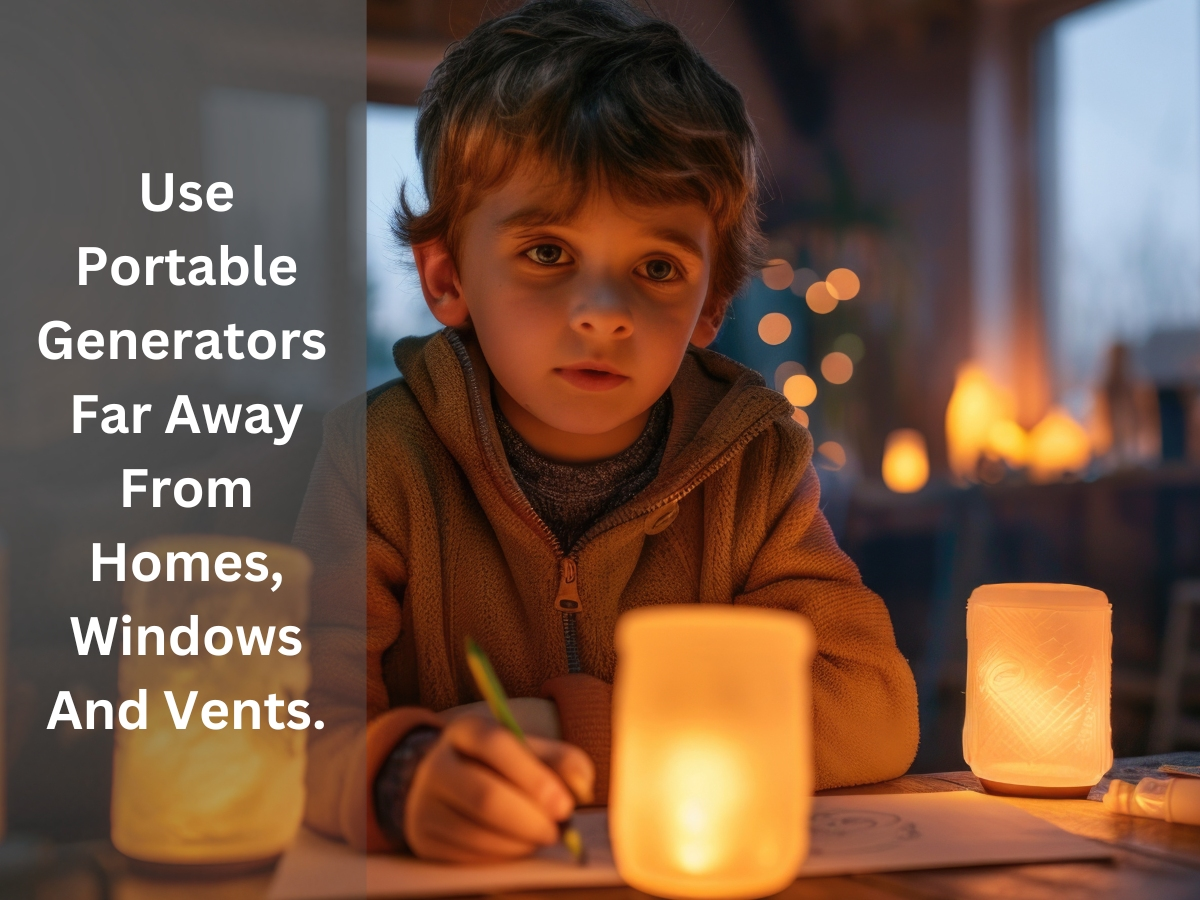Health & Fitness
Portable Generators Can Cause Deadly CO to Build Up Quickly in Homes
State's poison control center warns residents about carbon monoxide poisoning ahead of possible power outages from stormy weather.

Last week a string of strong thunderstorms across New Jersey left some residents without power. Many relied on their portable generators until the electric companies were able to restore power to those areas.
As we head into another round of soggy and stormy weather of the next few days, the New Jersey Poison Control Center warns residents about the risk of being exposed to carbon monoxide (CO) from exhaust fumes of fuel-powered generators.
“Carbon monoxide poisoning is one of the hidden hazards that worry us here at the poison control center during and after storms,” said Bruce Ruck, managing director of the New Jersey Poison Control Center at Rutgers New Jersey Medical School. “Carbon monoxide is a deadly gas, and people and pets are often accidentally exposed to it when fuel-powered generators are used in unsafe places. Since carbon monoxide gives no warning, it’s important you regularly test your home carbon monoxide detectors to make sure their working.”
Find out what's happening in Watchung-Green Brookwith free, real-time updates from Patch.
To prevent unintentional carbon monoxide poisoning, keep running generators outdoors only. Because fuel-powered equipment produces carbon monoxide, they should never be used indoors under any circumstance. Dangerous levels of carbon monoxide can build up quickly inside these areas poisoning anyone exposed to it.
Recognize the signs and symptoms of carbon monoxide poisoning and act quickly. Carbon monoxide poisoning is a medical emergency. Early symptoms of carbon monoxide poisoning can be mistaken for symptoms of common illnesses like colds, flu or COVID-19 (headache, dizziness, weakness, upset stomach, vomiting, chest pain and confusion). If symptoms improve when you go outside, consider carbon monoxide poisoning a possibility.
Find out what's happening in Watchung-Green Brookwith free, real-time updates from Patch.
The only way to detect carbon monoxide in your home, is to have working CO detectors. If a CO detector sounds its alarm, do not ignore it because it’s trying to save your life. Carbon monoxide detectors don’t malfunction as often as people may think. Get everyone including pets out to fresh air immediately. “Every minute counts in situations involving carbon monoxide,” said Ruck. “Contact the poison center for personalized, medical guidance and care.”
It is unsafe to idle your car in the garage even with the garage door open. If you need to charge your phone, pull your vehicle completely out of the garage with the tailpipe/exhaust facing away from the home before idling.
To reduce your risk of being exposed to carbon monoxide during storms, the New Jersey Poison Control Center offers the following safety information.
If you suspect carbon monoxide poisoning, get help immediately:
- If someone is unconscious or unresponsive (hard to wake or not breathing), get them out of the house and call 9-1-1 immediately.
- Leave the house or building right away. Do not waste time opening windows. This will delay your escape and cause you to breathe in even more dangerous fumes.
- Contact your local fire department or energy provider.
- Call the New Jersey Poison Control Center at 1-800-222-1222 for fast, medical advice. Do not waste time looking for information on the internet about carbon monoxide poisoning. Call the poison center for free and accurate information, 24/7.
Outdoors
- Generators should only be used outside, never indoors.
- Keep generators more than 20 feet from both your home and your neighbors’ homes. This includes keeping generators away from doors, windows, and vents. Generator Safety Tips
- Use pressure washers, grills, camp stoves, or other gasoline, propane, natural gas or charcoal-burning devices outdoors only. It is never safe to use them inside your home, basement, garage, carport, camper, boat cabin or tent.
Indoors
- Carbon monoxide detectors should be on every level of your home, including near sleeping areas.
- Check to make sure your CO detectors are working. If detectors are old or not working properly, replace them.
- Keeping a car running in a garage is extremely dangerous. Carbon monoxide gas can quickly build up inside the car and garage even with the garage door open.
- Be careful with “remote start” engines which may turn on without you knowing, causing the car to idle in the garage.
If you think someone was exposed to carbon monoxide, contact the New Jersey Poison Control Center immediately for medical guidance and care. Anyone can call for help – children, teens and adults. Poison control centers are a medical resource for both the public and healthcare providers. Get help 24/7 — Call 1-800-222-1222 or Chat Online. If someone is not breathing, hard to wake up, or having a seizure, call 9-1-1.